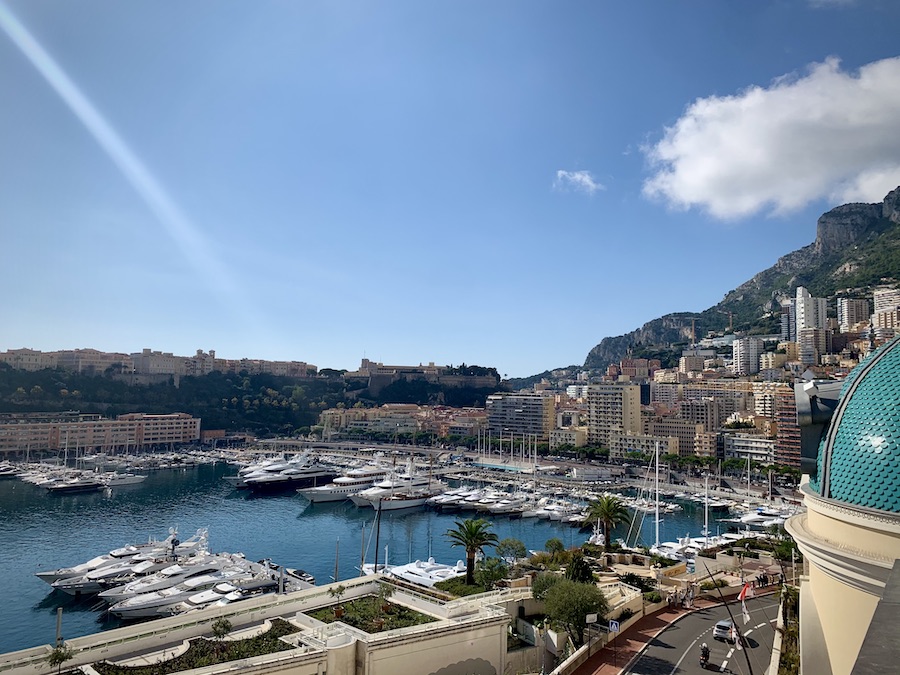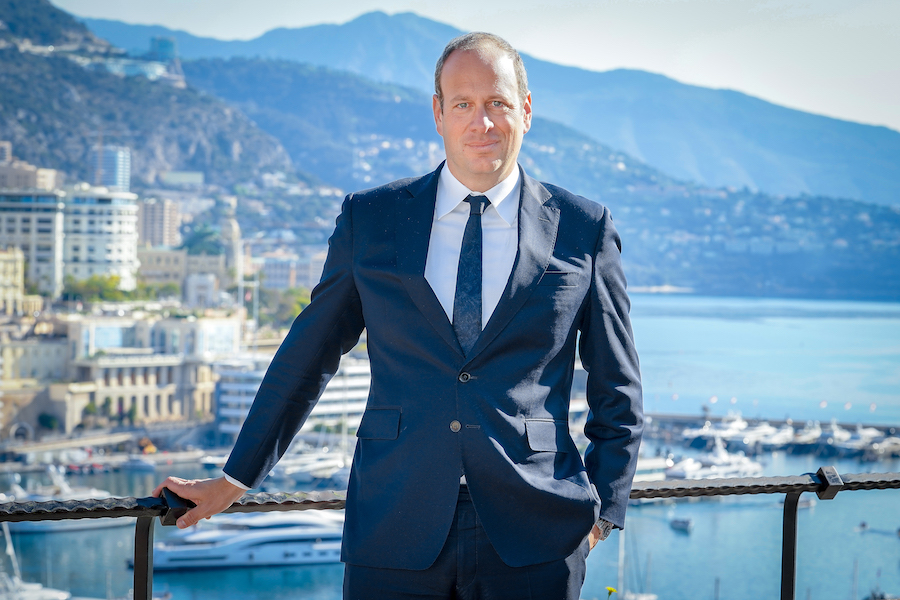Monaco is on a mission to create a whole new business sector: digital, and in order to attract those entrepreneurs, the Principality is passing some very bold laws, most importantly on the use of Blockchain. Fréderic Genta tells us more.
It is impossible to jump into this interview with Interministerial Delegate for the Digital Transition and Attractiveness Fréderic Genta without clarifying exactly what it is we are talking about – law number 995, which was recently adopted by the National Council.
The law builds upon law number 237 that was passed by the council in 2017. Basically, it paves the way for entrepreneurs to use blockchain technology in Monaco. It is a key part of this whole modernisation and digital transition of the Principality, because it effectively helps establish a brand new sector of activity in Monaco, and therefore, a whole new revenue stream for the State.
Monaco Life: Why is the passing of law no°995 so important for Monaco right now?
Fréderic Genta: The law was necessary because it provides the basis for the future of both the digital and finance economies; it gives the key principals, so it is a first step. We the government are very happy to have come to an agreement with the National Council. I think it’s going to equip Monaco to be extremely competitive in this area in 2023. There is still 18 months of work to make sure that every single norm is adapted, translated or created.
It effectively makes Monaco one of the first countries in the world to define blockchain, NFTs, and crypto in its law. What does that actually mean?
I think we were quite forward thinking on everything related to blockchain and consequently NFTs, then the metaverse which is a sub-part of NFTs. But we are keeping things quite flexible. Today, we have put together the blueprint for the future economy and now it is important we develop all that’s needed before the end of 2023 to be ahead of the curve.
How does this law play into the attractiveness agenda of Monaco and who is the Principality targeting by having this law?
This law is fully adapted to our ambitions and attractiveness. Monaco is more and more looking to attract active residents who have a professional life either as a CEO, entrepreneur or investor, and want to pursue and grow in the Principality. They come from European countries – 95% of our residents are from the EU, they are aged between 40 and 50, and they come with their families. We are fully aware that our residents have changed, that they have new needs, and we are really moving to target this new type of resident.
So, having a law that’s going to help the finance and digital sectors grow, by building on digital finance, is a huge asset. We are really targeting those active people who are going to come as residents, then become investors, and then entrepreneurs, because Monaco is really about the people, and those who grow the economy with the creation of companies and investments.
And it’s obviously a smart play by Monaco to pursue digital initiatives that require little office space in a country where space is enormously limited…
For sure, that is why we call the country’s transformation programme ‘Extended Monaco’, because digital is a unique opportunity to make Monaco much bigger, to make the economy much less dependent on square metres, on location and office space.
For us, digital and finance are really two key industries in a world where square metreage is rare and where people have a different approach to work. There has never been a time in history when there was such a great opportunity to be a small city-state.
For Monaco, it is a huge advantage because we can now compete to bring the best and the brightest from big cities. Some other city states have a deep understanding of that already. That’s why Singapore and Dubai are moving so fast in this area; that is why they are tailoring packages for residents and CEOs to come with their cabinets.
With the health crises, we experienced two deep transitions – the environment and digital. It is at the same time great for opportunities – space has never been so less important in an economy, but also the threat – many other competitors are coming to our segment. So, we have to be really aware of the threat while optimistic of the opportunity.

How much of the digital transition have you actually spearheaded?
Well, we were behind. When I came, we were in the bottom five of the UN in terms of digital administration. Now, I think we are about the European average and I hope soon we will be in the top 10, or top five.
Before I came, there were 25 online administrative services, today we have 110-120, so there has been a huge increase. Now, every single child in Monaco’s public education system can learn to code from ages three to 18. Last year we were ranked first in the EU in coding. Every single middle school or high school student has a tablet and access to full digital education in every class and on every topic. Monegasques now have access to a digital identity, following our adoption of the Estonian model, and they can do their government and administrative tasks online. There has been a huge improvement on many topics.
I come from a business background – I was a banker, I worked for Google, and Amazon in California, so I was growing the economies of the top tier. That’s why we invested a lot in the Blue Fund and training in Monaco. We are training more than 2,000 workers in digital, and with the Blue Fund we have helped more than 400 companies complete their digital transformation.
So, the first thing we focussed on was services, the second was how to grow our economy in a digital world and how to enable economic growth and ultimately government revenues with this digital transition. Because it is happening anyway, and we have to make sure the government and the country takes their fair share of this evolution.
Speaking of the Blue Fund (subsidies for Monegasque companies to make a digital upgrade), do we know if there is a time limit on that?
We aim to continue it next year because it has been a huge success. For every euro invested, eight euros of revenue was created by the company, which means revenues for the government and the state. It is a very virtuous cycle; we are extremely happy with the results – more than 300 jobs were created with the Blue Fund – so we are very keen to take this approach forward in the future.
Digital and economy are the same word for me. When you speak about digital you are speaking about the economy, and vice versa. It is the exact same topic in today’s world. And that’s where the attractiveness comes in to it. Monaco’s model is to attract entrepreneurs, companies, and investors. Monaco does not have a huge intermarket, it does not produce a lot. The vast amount of the wealth is created through attractivity, so by having attractivity and digital linked, there is a lot of things that can be done together to grow our economy.
What are the digital ambitions of Monaco now?
We have two objectives – first is economic growth. Monaco has to grow its economy more and more; that’s what the government has been doing with start-up hubs MonacoTech and Monaco Boost… we need to have both our classic economy and our future economy. That is the idea behind the laws.
The second is quality of life, how digital can be integrated in the big public policies such as health, education, and mobility, to get results. So, everything related to those priorities will really be pushed forward.
I believe there is also a push to simplify the company creation laws for start-ups in Monaco?
Yes, we are really thinking with the government about modernising the law for company creation, and even further about the life of a company – raising money, different vehicles to invest…
There are things that need to be done because, at the moment, our law is not fully adapted to our economy, which has changed a lot in the last years – the way companies are created, the way they grow and are funded, so we have to adapt our laws to an economy that has fundamentally changed.
Do you feel you have the support you need? Because there appear to be a number of National Councillors that share the same digital vision as you…
It is the Prince’s vision first of all. He gave four priorities to the government: attractiveness, environmental preservation, digital and security. I have the responsibility of two of those, and for sure the whole country is aligned behind the Prince on those priorities. We all know that square metres will not magically appear overnight, and we owe it to our model to have sustainable growth, but we need growth without square metreage, which means finance and digital.
The interview has been edited and condensed for clarity.
Photo of Frédéric Genta source: Government Communications Department
SEE ALSO:
PODCAST INTERVIEW: PROF. PHILIP LANDRIGAN ON CHILDHOOD CANCER AND THE “CHEMICAL CRISIS”
